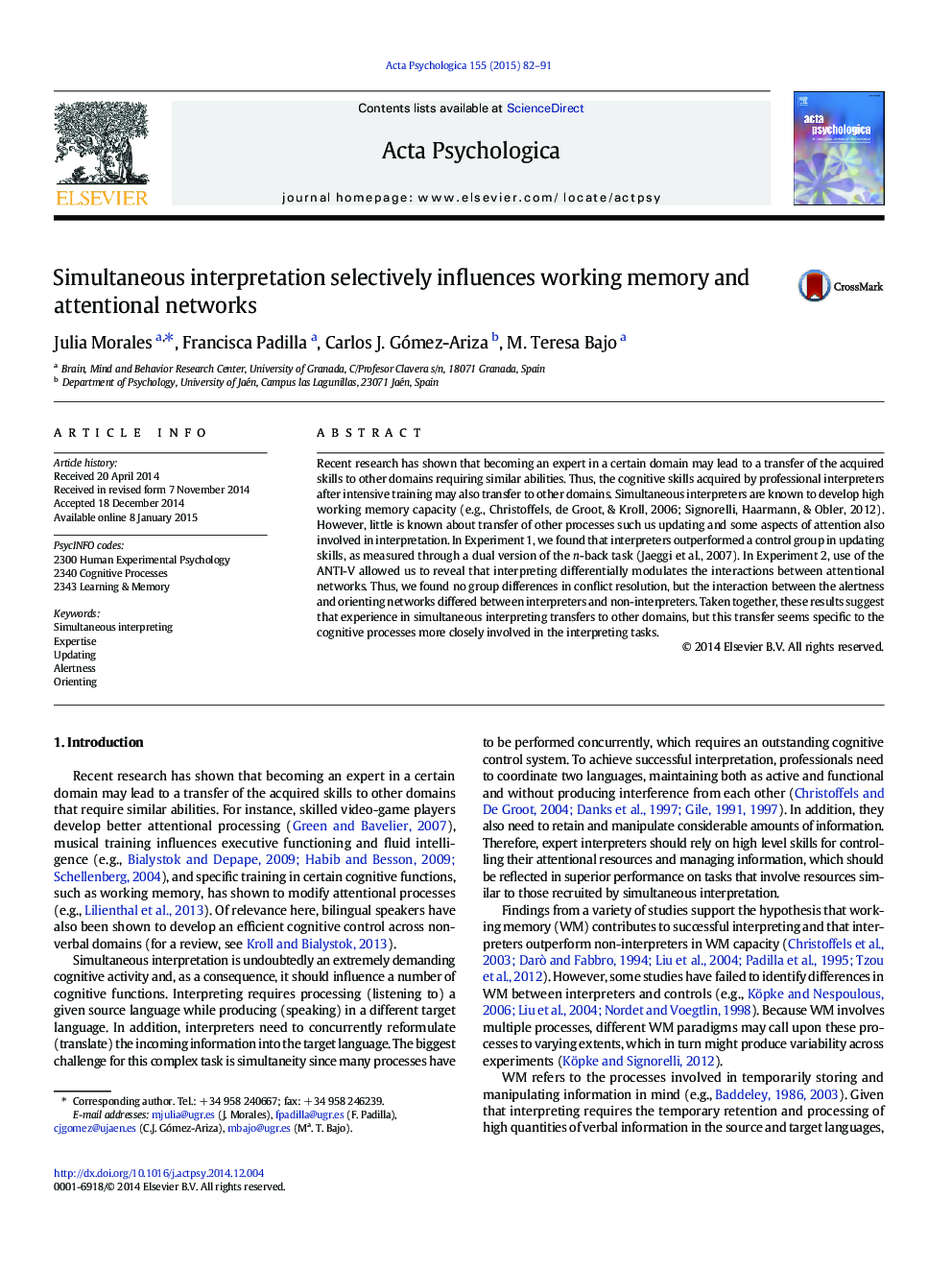| Article ID | Journal | Published Year | Pages | File Type |
|---|---|---|---|---|
| 7277520 | Acta Psychologica | 2015 | 10 Pages |
Abstract
Recent research has shown that becoming an expert in a certain domain may lead to a transfer of the acquired skills to other domains requiring similar abilities. Thus, the cognitive skills acquired by professional interpreters after intensive training may also transfer to other domains. Simultaneous interpreters are known to develop high working memory capacity (e.g., Christoffels, de Groot, & Kroll, 2006; Signorelli, Haarmann, & Obler, 2012). However, little is known about transfer of other processes such us updating and some aspects of attention also involved in interpretation. In Experiment 1, we found that interpreters outperformed a control group in updating skills, as measured through a dual version of the n-back task (Jaeggi et al., 2007). In Experiment 2, use of the ANTI-V allowed us to reveal that interpreting differentially modulates the interactions between attentional networks. Thus, we found no group differences in conflict resolution, but the interaction between the alertness and orienting networks differed between interpreters and non-interpreters. Taken together, these results suggest that experience in simultaneous interpreting transfers to other domains, but this transfer seems specific to the cognitive processes more closely involved in the interpreting tasks.
Keywords
Related Topics
Life Sciences
Neuroscience
Cognitive Neuroscience
Authors
Julia Morales, Francisca Padilla, Carlos J. Gómez-Ariza, M. Teresa Bajo,
